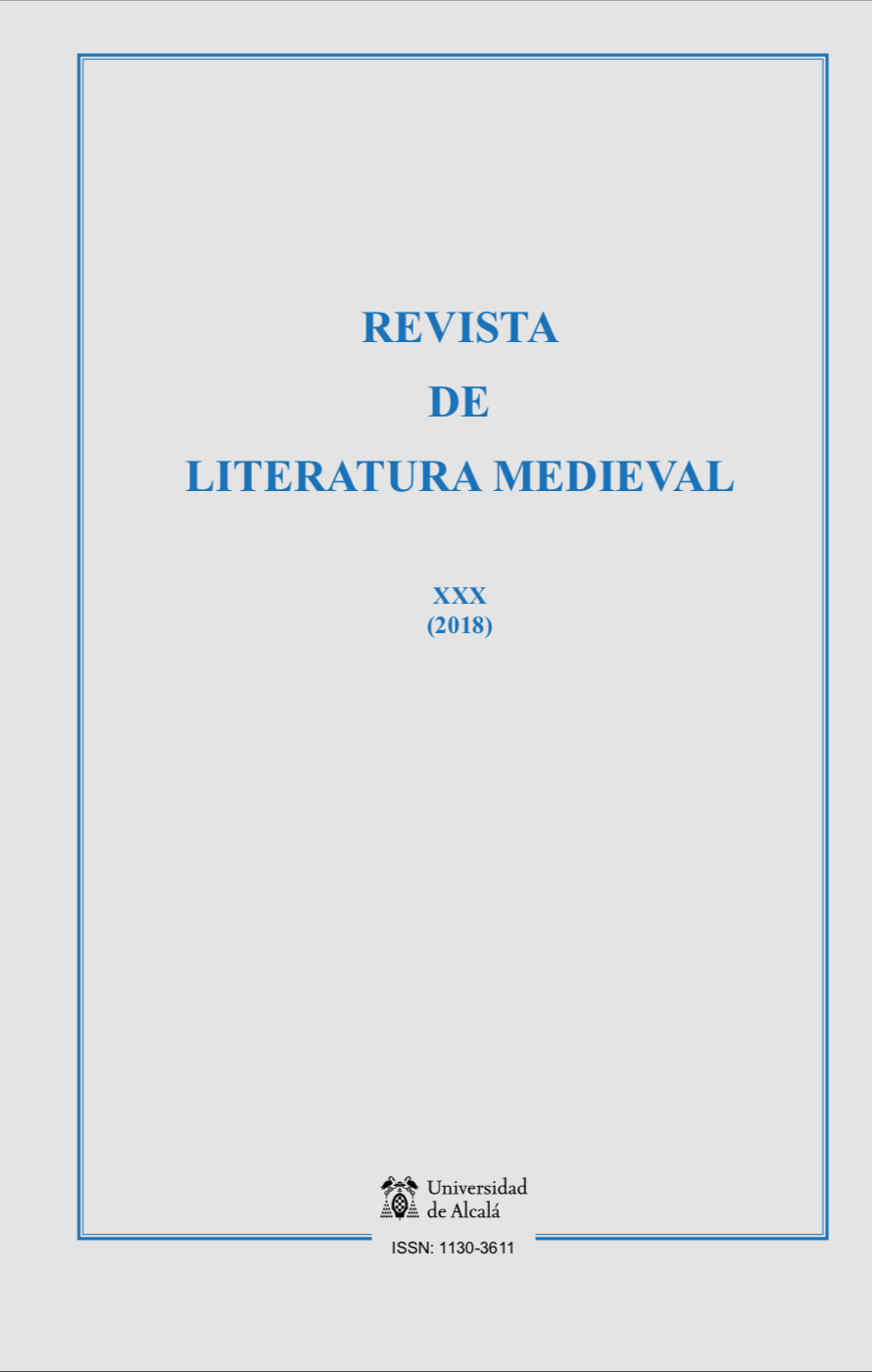Enrique de Villena and Curial e Güelfa
DOI:
https://doi.org/10.37536/RLM.2018.30.0.74052Keywords:
Medieval Catalan literature, Enrique de Villena, Curial e Güelfa, Enyego d’Àvalos, Glossed AeneidAbstract
Enrique de Villena (1384-1434), a nobleman keen on arts, a bilingual author in Catalan and Spanish, who lived for some years (ca. 1416- 1429) –in a sporadic way– in the Valencian court of Alfonso V of Aragon and John of Navarre, had an influence on the concept of literature to the author of the chivalric novel Curial e Güelfa (Enyego d’Àvalos?), written in Catalan (Naples-Milan, ca. 1445-1448) and which could be related with the Italian court of the Magnanimous. The Curial displays intertextual connections with Villena’s work, apart from shared hapaxes and neologisms. The author was aware of –undoubtedly– Los dotze treballs d’Hèrcules (Valencia, 1417) and parodied mythographic mistakes from the romanced, glossed and moralised Aeneid by Villena (Valencia, 1427-1429), two works that he alludes to implicitly in his own. Both writers spread the ideal of the vir scientificus Hercules (Coluccio Salutati) as an allegory of the effort the sçientíficos/scientífichs knights put on studying the Greek-Latin classics to grow up in virtue. And both seem to anticipate a «political virgilianism» which could be interpreted as the idea of embellishing literarily the historical events to perpetuate the military glory in a respectable format.
Downloads
Métricas alternativas
Downloads
Published
How to Cite
Issue
Section
License
The opinions and facts stated in each article are the exclusive responsability of the authors. The University of Alcalá is not responsible in any case for the credibility and aunthenticity of the studies.
Authors will retain the rights on their work, even if they will be granting the journal a non-exclusive right of use to reproduce, edit, distribute, publicly communicate and show their work. Therefore, authors are free to enter into additional, independent contracts for non-exclusive distribution of the works published in this journal (such as uploading them to an institutional repository or publishing them in a book), as long as the fact that the manuscripts were first published in this journal is acknowledged.
Works are published under the terms stipulated in the Attribution-NonCommercial-ShareAlike 4.0 International License (CC BY-NC-SA 4.0) that allows third parties to share the work under the following conditions:
Attribution — You must give appropriate credit, provide a link to the license, and indicate if changes were made. You may do so in any reasonable manner, but not in any way that suggests the licensor endorses you or your use.
NonCommercial — You may not use the material for commercial purposes.
ShareAlike — If you remix, transform, or build upon the material, you must distribute your contributions under the same license as the original.









